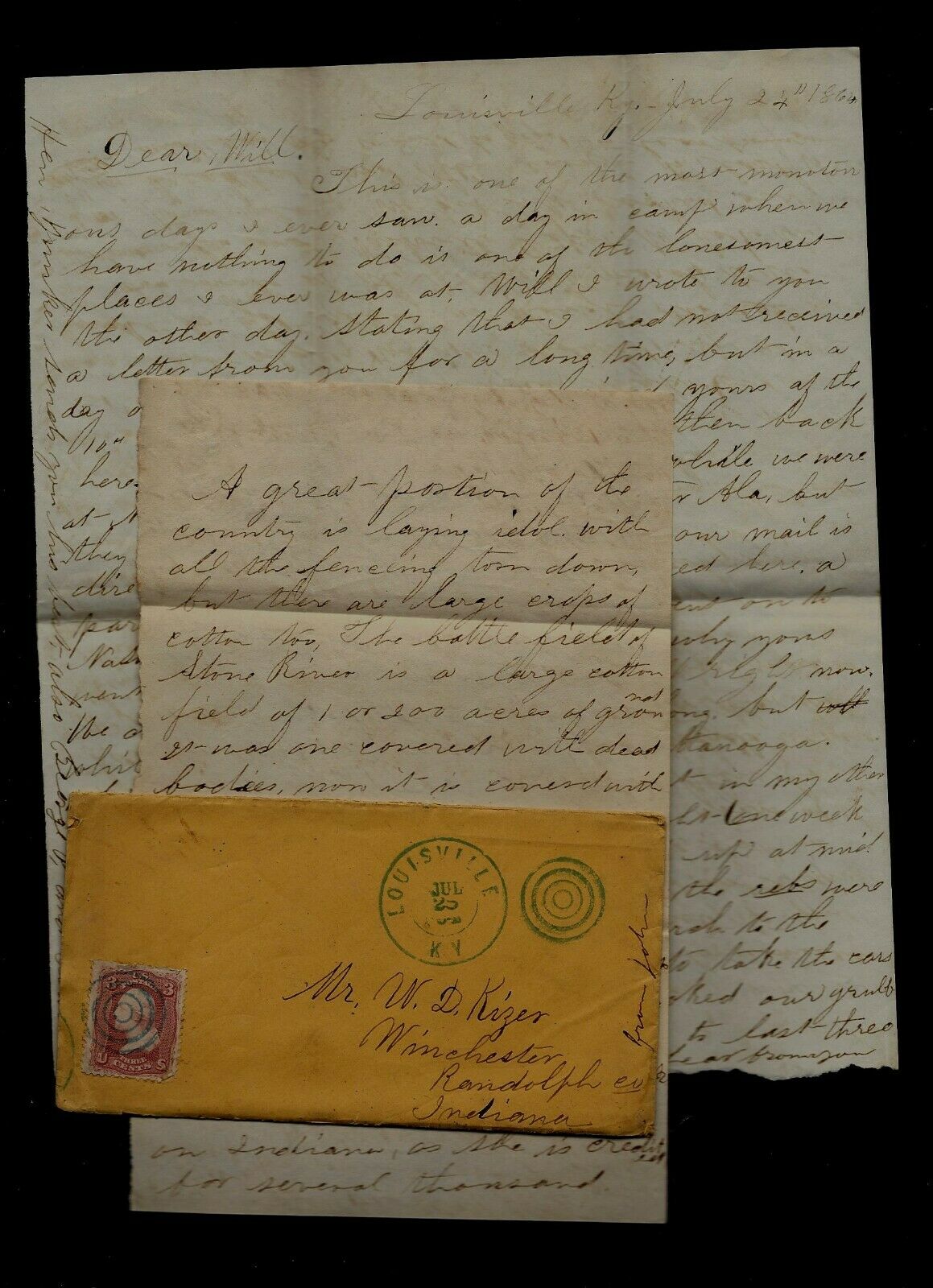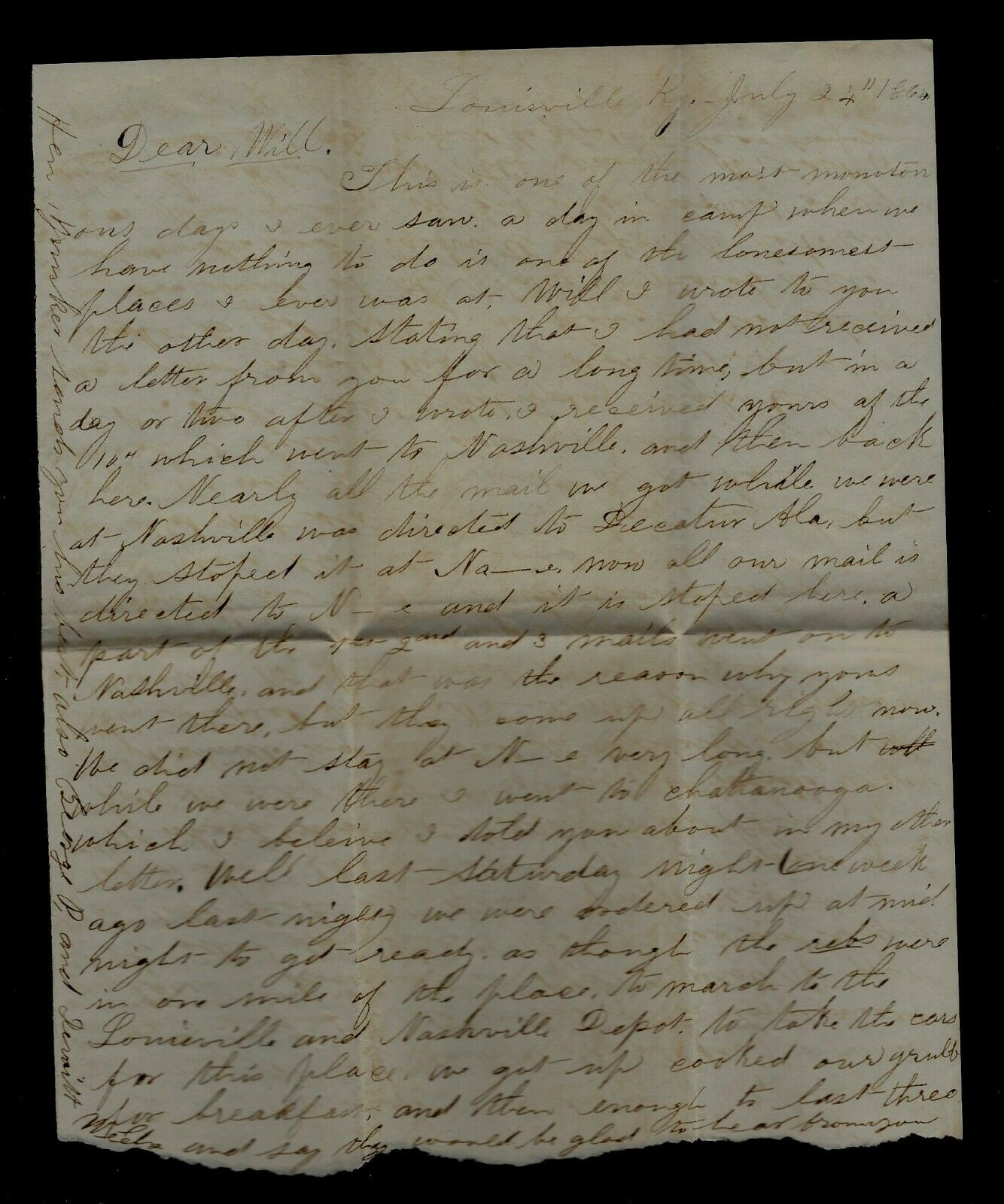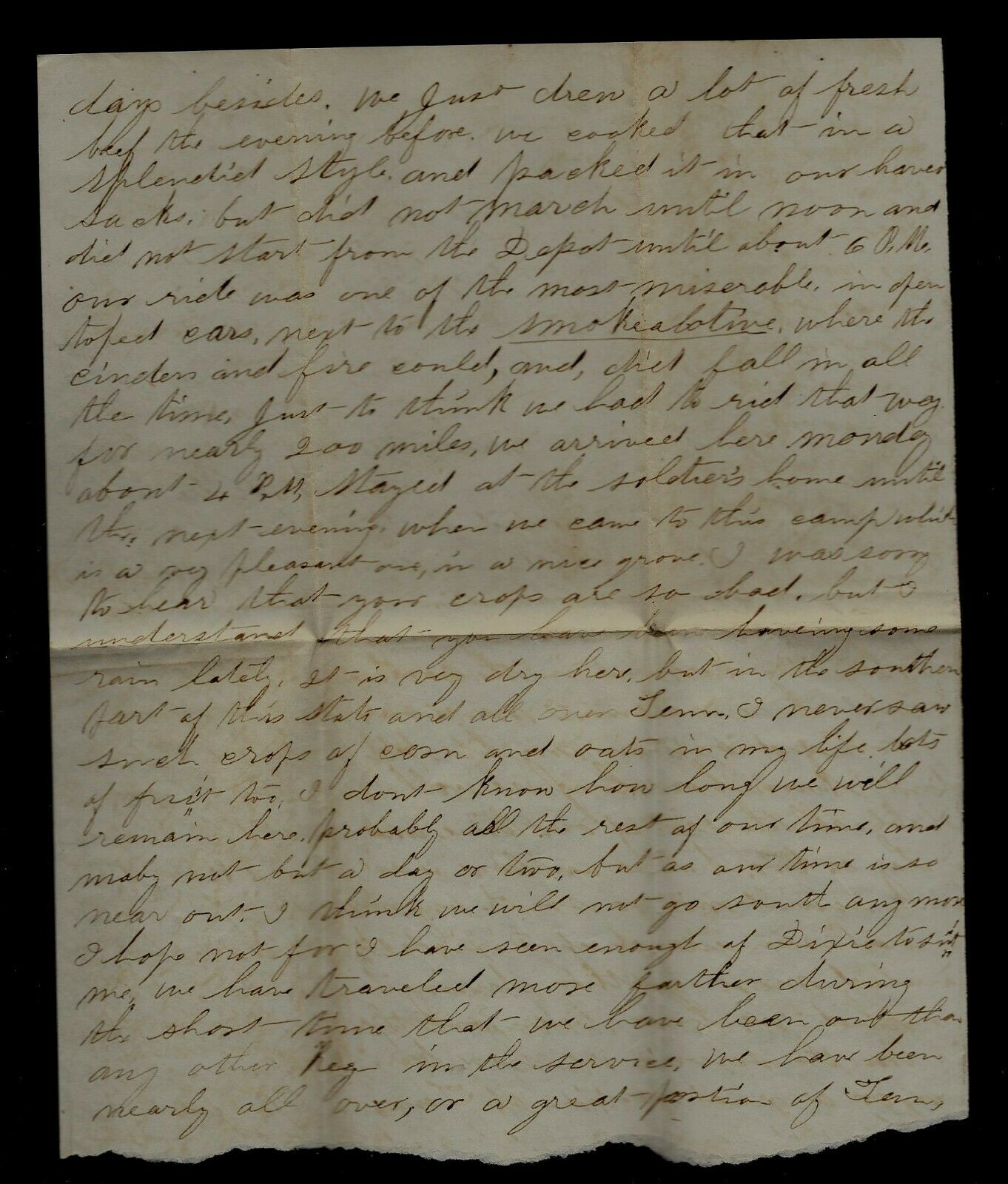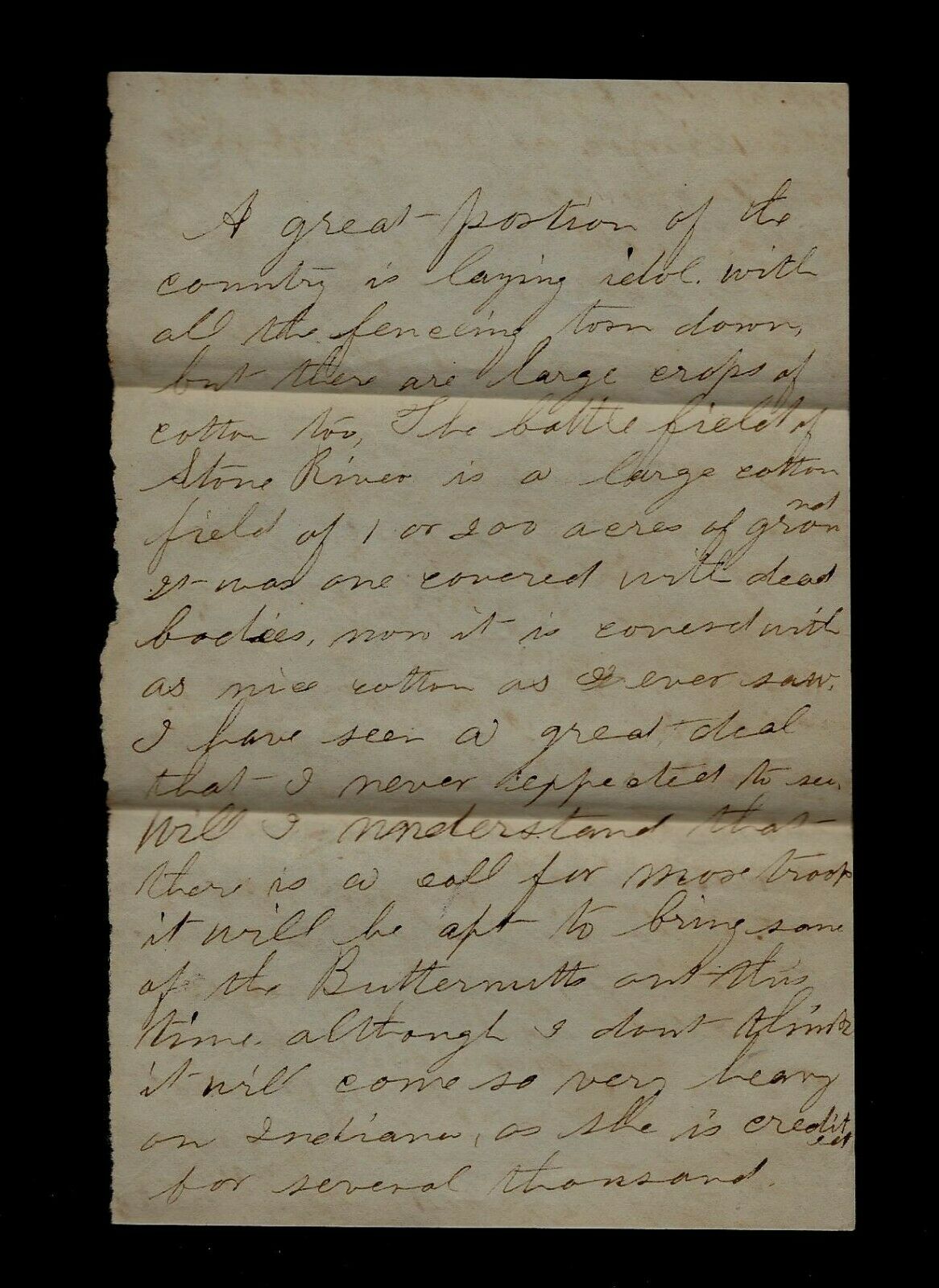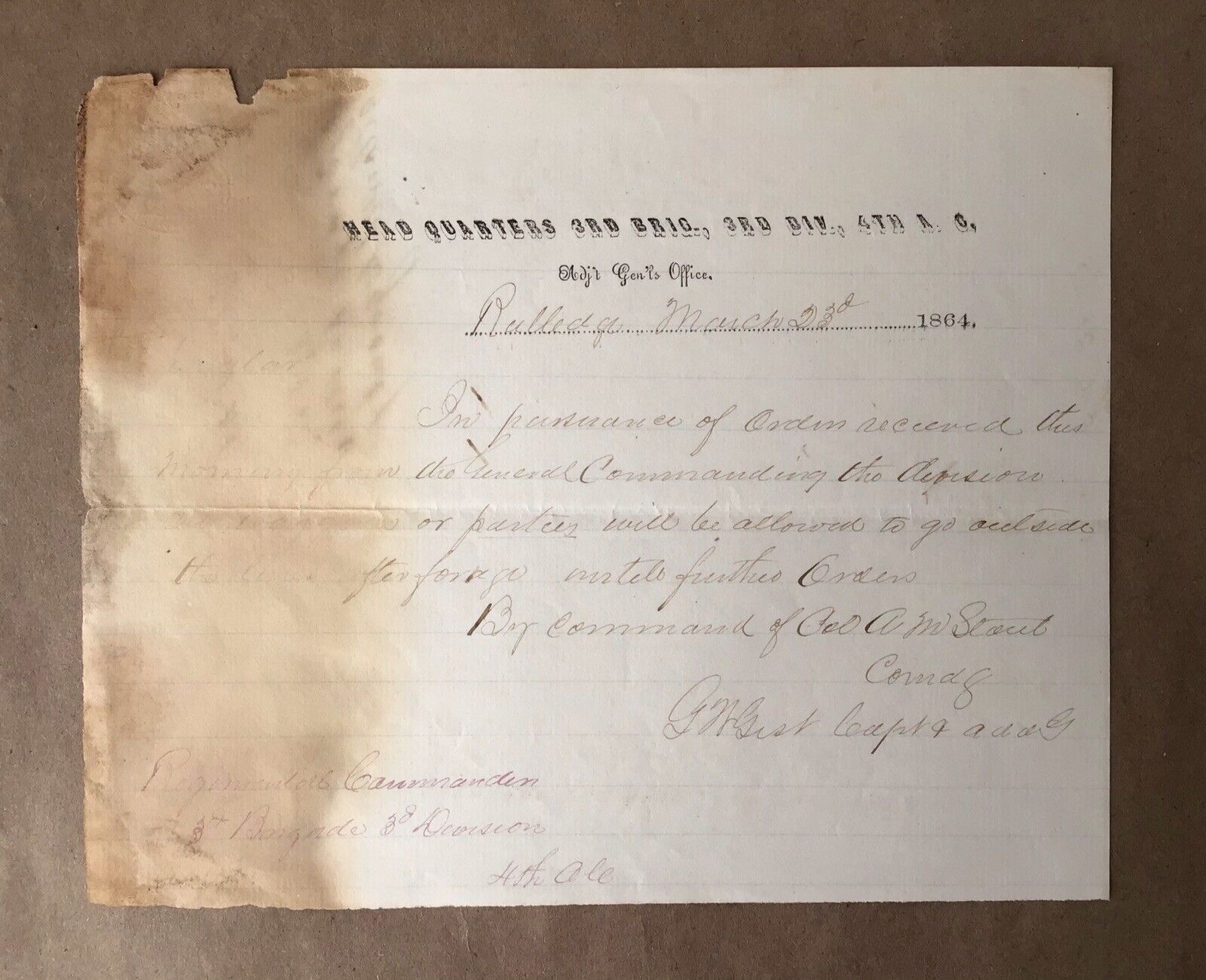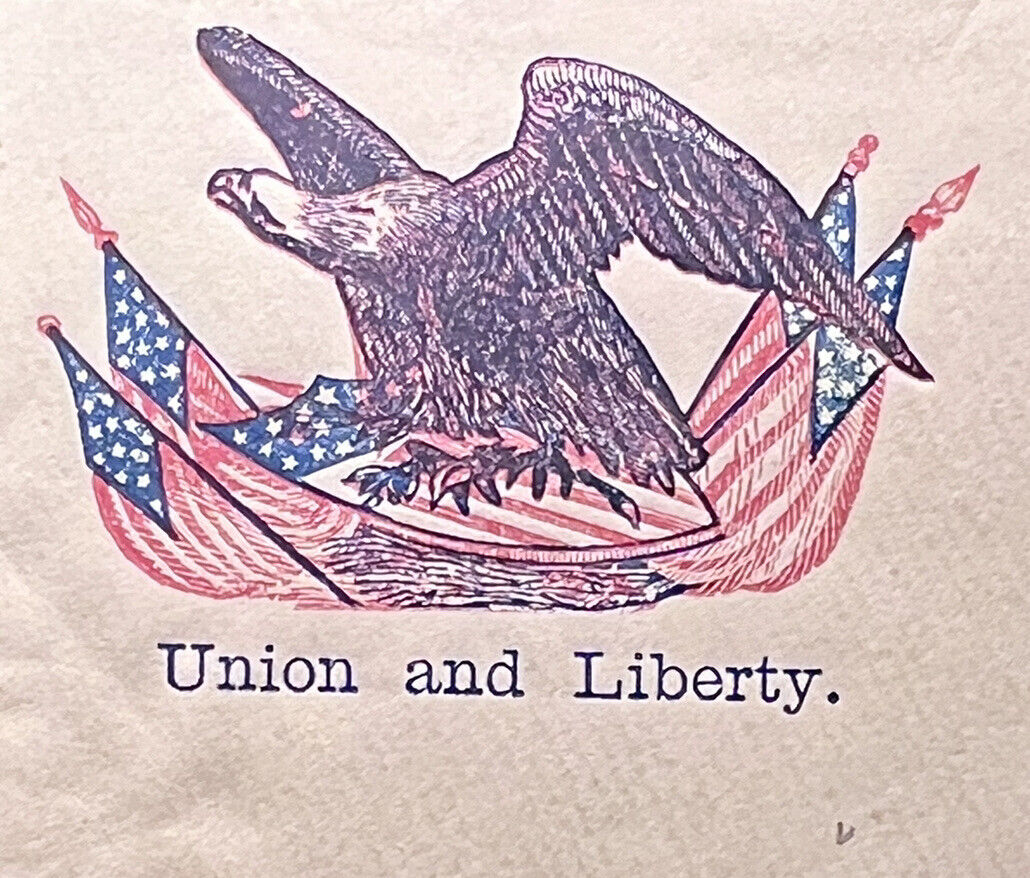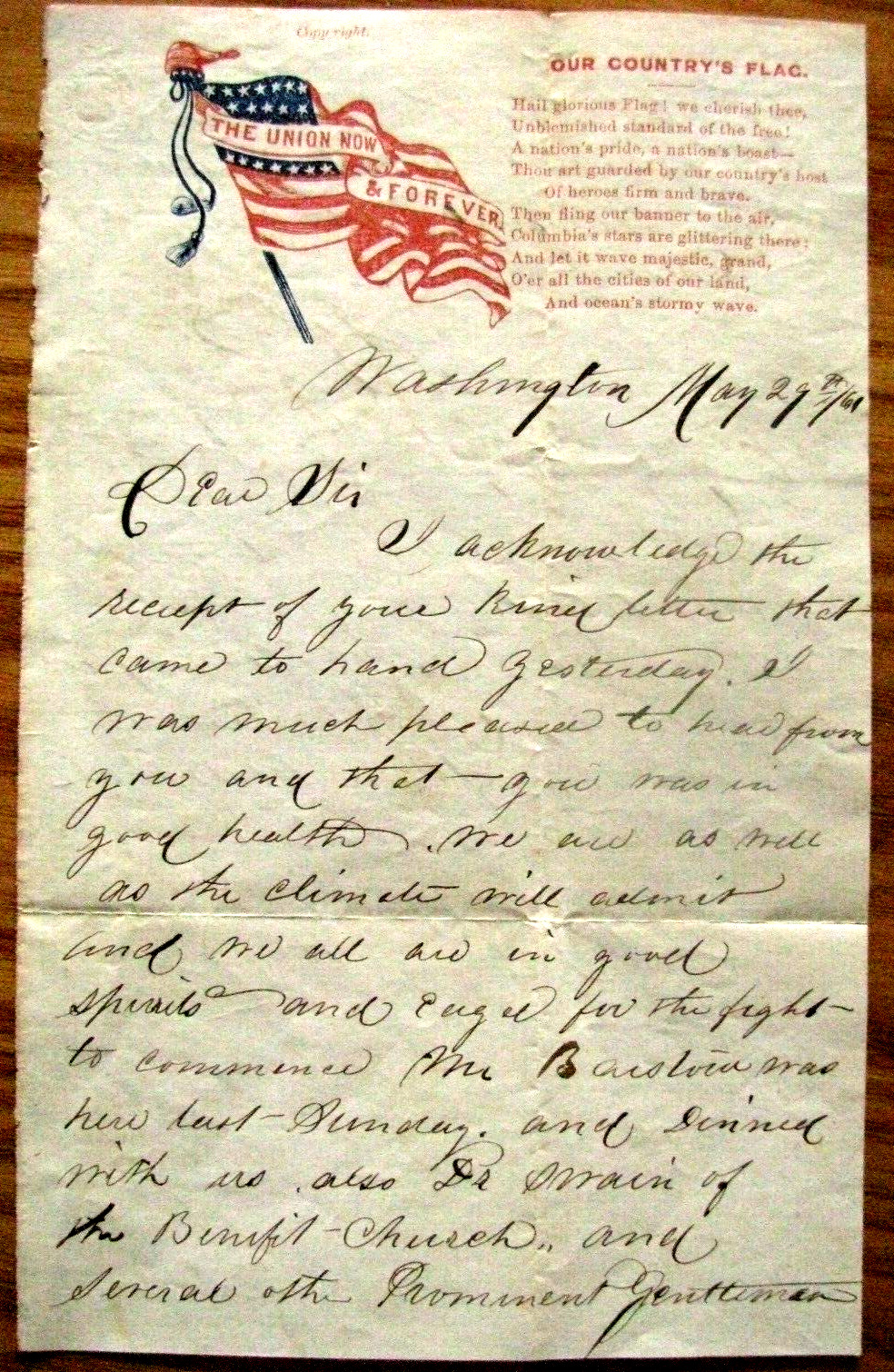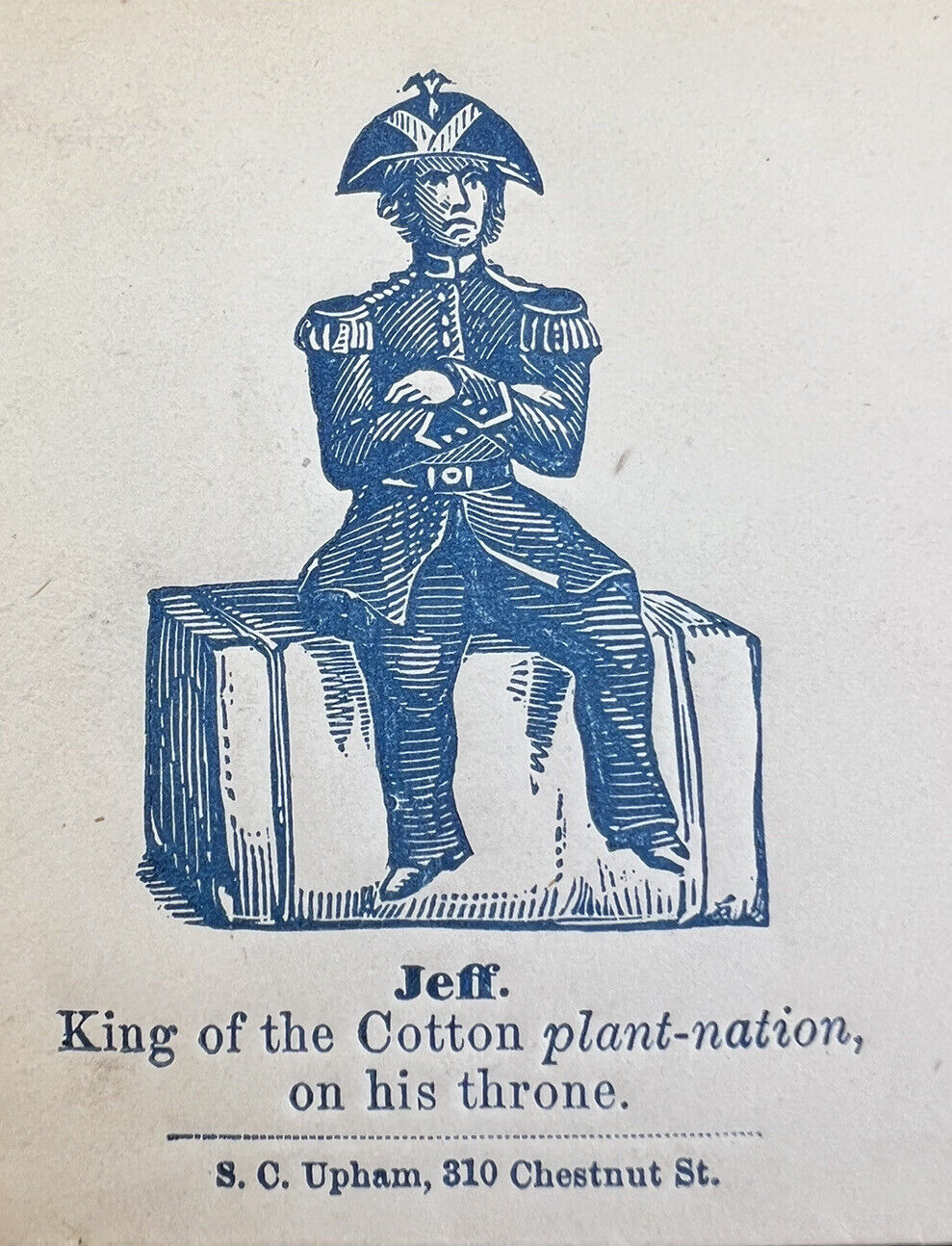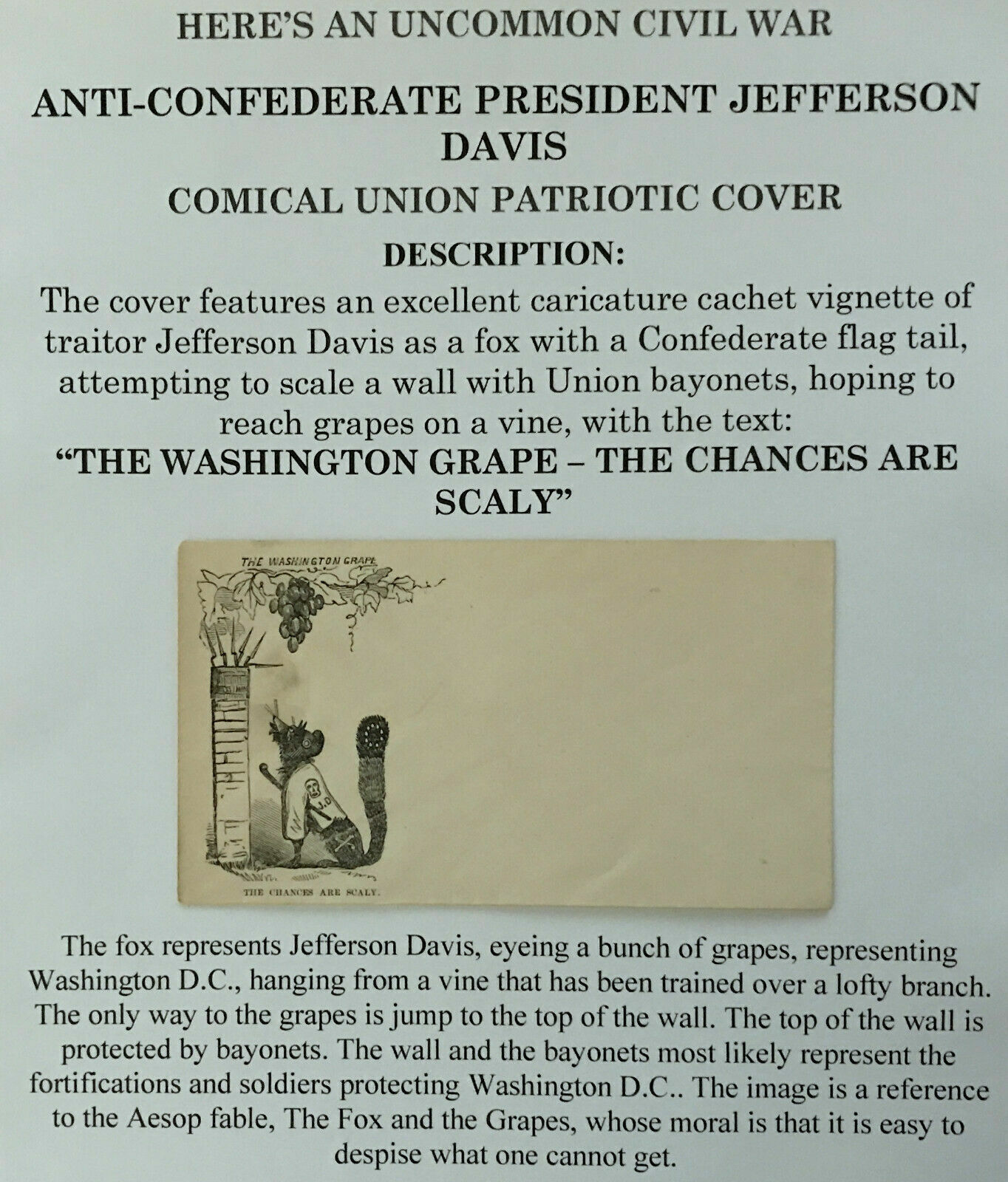-40%
CIVIL WAR LETTER - 134th Indiana Infantry - Battle Stone River, Great Content !
$ 18.47
- Description
- Size Guide
Description
CIVIL WAR LETTERCo. F, 134th Indiana Infantry
This Civil War soldier letter was written by John Wesley Study (1844-1893), the orphaned son of Levi Study (1814-1849) and Sarah Ballenger (1822-1863) of Randolph county, Indiana. After the war, in 1870, John married Susan Edith Brown (1851-1923) of Rushville, Indiana. We learn from the letters that John worked as a school teacher while young man. He later became a lawyer in Rushville.
John enlisted in May 1864 in
Co. F, 134th Indiana Infantry
and was mustered out with the regiment in August 1864 after 100 day’s service. Upon reaching Nashville they were assigned to railroad guard duty along the lines of the Nashville & Chattanooga, Tennessee & Alabama, and Memphis & Charleston railroads. They were kept constantly engaged in this work until the latter part of Aug., 1864, serving beyond the time for which they had enlisted, keeping Sherman’s lines of communication open for the transportation of supplies to his army.
The letters were addressed to William Diggs Kizer (1847-1921), the son of Thomas W. Kizer (1824-1901) and Susannah Way (1830-1875) of Winchester, Indiana. Thomas Kizer was a merchant in Winchester, Randolph county, Indiana.
TRANSCRIPTION
Louisville, Kentucky
July 24, 1864
Dear Will,
This is one of the most monotonous days I ever saw—a day in camp when we have nothing to do is one of the lonesomest places I ever was at. Will, I wrote to you the other day stating that I had not received a letter from you for a long time but in a day or two after I wrote, I received yours of the 10th which went to Nashville and then back here. Nearly all the mail we get while we were at Nashville was directed to Decatur, Alabama, but they stopped it at Nashville. Now all our mail is directed to Nashville and it it is stopped here. A part of the 1st, 2nd, and 3rd mails went on to Nashville and that was the reason why yours went there, but they come up all right now.
We did not stay at Nashville very long but while we were there I went to Chattanooga which I believe I told you about in my other letter. Well last Saturday night (one week ago last night) we were ordered up at midnight to get ready as though the rebs were in one mile of the place to march to Louisville & Nashville Depot to take the cars for this place. We got up, cooked our grub for breakfast, and then enough to last three days besides. We just drew a lot of fresh beef the evening before. We cooked that in a splendid style and packed it in our haversacks but did not march until noon and did not start from the depot until about 6 P. M.
Our ride was one of the most miserable—in open cars next to the
smokealotive
where the cinders and fire could, and did, fall in all the time. Just to think, we had to ride that way for nearly 200 miles. We arrived here Monday about 4 P. M., stayed at the Soldier’s Home until the next morning, when we came to this camp which is a very pleasant one on a nice grove.
I was sorry to hear that your crops are so bad but I understand that you have been having some rain lately. It is very dry here but in the southern part of this state and all over Tennessee I never saw such crops of corn and oats in my life. Lots of fruit too. I don’t know how long we will remain here. Probably all the rest of our time and maybe not but a day or two, but as our time is so near out, I think we will not go south anymore. I hope not for I have seen enough of Dixie to suit me. We have traveled more farther during the short time that we have been out than any other regiment in the service. We have been nearly all over, or a great portion of Tennessee. A great portion of the country is laying idle with all the fencing torn down but there are large crops of cotton too.
The battlefield of Stone River is a large cotton field of 1 or 200 acres of ground. It was one covered with dead bodies. Now it is covered with as nice cotton as I ever saw. I have seen a great deal that I never expected to see.
Will, I understand that there is a call for more troops. It will be apt to bring some of the butternuts out this time although I don’t think it will come so very heavy on Indiana as she is credited for several thousand but it will bring some of them out When you write, I want you to tell me how many more she has to furnish and what the quota of Randolph county is ad it will be quite interesting to me.
Will, I don’t know whether you can read this or not but you must do your best. Our time is out the last day of August. The health of the company is tolerable good. Ask your father what he is going to give me to do for school teaching this winter as I would like to teach again if I don’t go to war again. Write soon and tell me all you know. So no more.
Yours, — J. W. Study
Co. F, 134th Regt. Ind. Vol.
TERMS
.00 postage in the United States. We accept Paypal.
Postage combined for multiple purchases. Please wait for me to send the invoice, otherwise you will pay a higher rate.
For International buyers, we utilize eBay’s Global Shipping Program. We had too many packages sent via the post office go missing. So we believe this program will be safer for us and for you.
We are members of the American Philatelic Society, the U.S. Philatelic Classics Society, the Confederate Stamp Alliance and the Illinois Postal History Society.
We only sell genuine, original letters (no copies or reproductions). Some of our letters have been transcribed and nicely presented for future genealogists and history buffs on the Spared & Shared blog.
We have been selling on eBay since 1998. BID WITH CONFIDENCE !
